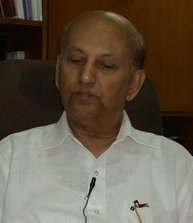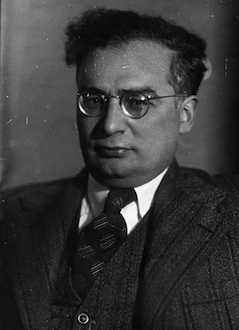
An astronaut is a person trained, equipped, and deployed by a human spaceflight program to serve as a commander or crew member aboard a spacecraft. Although generally reserved for professional space travelers, the term is sometimes applied to anyone who travels into space, including scientists, politicians, journalists, and tourists.

Roger Bruce Chaffee was an American naval officer, aviator and aeronautical engineer who was a NASA astronaut in the Apollo program.

The International Astronautical Federation (IAF) is an international space advocacy organization based in Paris, and founded in 1951 as a non-governmental organization to establish a dialogue between scientists around the world and to lay the information for international space cooperation. It has over 390 members from 68 countries across the world. They are drawn from space agencies, companies, universities, professional associations, museums, government organizations and learned societies. The IAF organizes the annual International Astronautical Congress (IAC). As of 2019, Pascale Ehrenfreund has served as the president of the IAF.

Guion Stewart Bluford Jr. is an American aerospace engineer, retired United States Air Force (USAF) officer and fighter pilot, and former NASA astronaut, in which capacity he became the first African American to go to space. While assigned to NASA, he remained a USAF officer rising to the rank of colonel. He participated in four Space Shuttle flights between 1983 and 1992. In 1983, as a member of the crew of the Orbiter Challenger on the mission STS-8, he became the first African American in space as well as the second black person in space, after Cuban cosmonaut Arnaldo Tamayo Méndez.

Sandra Hall Magnus is an American engineer and a former NASA astronaut. She flew to space three times, as mission specialist on STS-112, as ISS crewmember during Expedition 18 and as mission specialist on STS-135. She is also a licensed amateur radio operator with the call sign KE5FYE. From 2012 until 2018 Magnus was the executive director of the American Institute of Aeronautics and Astronautics.

Edward George Gibson is a former NASA astronaut, pilot, engineer, and physicist.

The International Space University (ISU) is dedicated to the discovery, research, and development of outer space and its applications for peaceful purposes, through international and multidisciplinary education and research programs. ISU was founded in 1987 and is registered in France and in the US as a non profit organisation. The university offers a one or two-year Master in Space Studies (MSS) in Strasbourg and shorter professional development programs across the world. The latter include an itinerant nine-week Space Studies Program (SSP), a five-week Southern Hemisphere SSP in partnership with the University of South Australia, a 6-week Commercial Space graduate certificate in partnership with the Florida Institute of Technology, and one-week Executive Space Courses in Australia, Europe and the United States.
The Hermann Oberth Gesellschaft (1952-1993) was an association named after Hermann Oberth, the German astronautics pioneer and the authoritative expert on rocketry outside the United States, which develops and builds rockets and trains engineers in space technology.

Udupi Ramachandra Rao was an Indian space scientist and former chairman of the Indian Space Research Organisation. He was also the Chairman of the Governing Council of the Physical Research Laboratory at Ahmedabad and Nehru Planetarium at Bengaluru and chancellor of the Indian Institute for Space Science and Technology (IIST) at Thiruvananthapuram. He is known as "The Satellite Man of India". He pioneered India's first satellite launch Aryabhata in 1975.

The British Interplanetary Society (BIS), founded in Liverpool in 1933 by Philip E. Cleator, is the oldest existing space advocacy organisation in the world. Its aim is exclusively to support and promote astronautics and space exploration.
The Luigi G. Napolitano Award is presented every year at the International Astronautical Congress. Luigi Gerardo Napolitano was an engineer, scientist and professor.

Leonid Ivanovich Sedov was a Russian physicist who worked as an engineer in the former Soviet space program.

The Medal "For Merit in Space Exploration" is a state decoration of the Russian Federation aimed at recognising achievements in the space program. It was established by presidential decree №1099 of September 7, 2010 which revamped the entire Russian awards system.

Roger D. Launius is an American historian and author of Lithuanian descent, a former chief historian of NASA. He retired in 2016 as Associate Director for Collections and Curatorial Affairs for the Smithsonian National Air and Space Museum in Washington, D.C. Launius is a consulting historian in air and space history. He has written many books on space flight, and also published on the history of the Latter Day Saint movement.

Wang Xiji is a Chinese aerospace engineer. The chief designer of China's first sounding rocket (T-7), first space launch vehicle and first recoverable satellites, he was awarded the Two Bombs, One Satellite Meritorious Medal in 1999. He is an academician of the Chinese Academy of Sciences and the International Academy of Astronautics, and was inducted into the International Astronautical Federation Hall of Fame in 2016. Wang turned 100 in July 2021.
Temidayo Isaiah Oniosun is a Nigerian space scientist and businessperson. He is the founder of Space in Africa and the former regional coordinator for Space Generation Advisory Council for Africa.
Ruvimbo Samanga is a Space Policy Analyst and sits on the Board of the Space Arbitration Assocciation. Ruvimbo has supported a number of international initiatives in policy, business, outreach, and education geared towards the advancement of space and satellite applications for sustainable development. She currently serves as an Ambassador for the MILO Space Science Institute, and previously served a 2-year term as the National Point of Contact for Zimbabwe in the Space Generation Advisory Council, the latter which is in support of the United Nations Program on Space Applications.
The World Space Award is presented by International Astronautical Federation to an eminent individual or team at the IAC Congress, after a nomination process, that has made an exceptional impact to the progress of the world space activities by their outstanding contributions in the fields of space science, technology, medicine, law, or management over the period of time. it is often described as the "world's highest aerospace award", first awarded in 2013.












